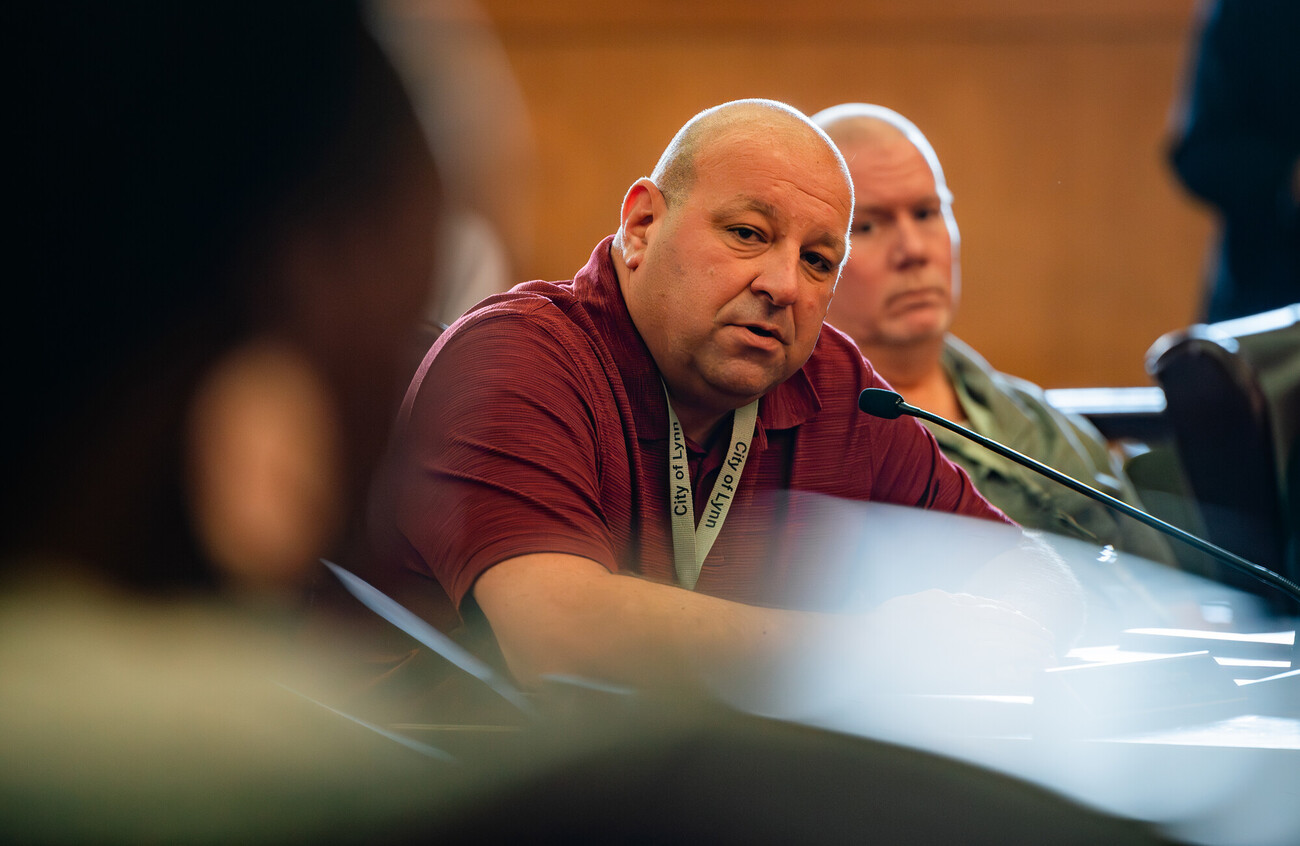LYNN – The City Council has unanimously approved Mayor Jared C. Nicholson’s proposed $533,106,166 budget for Fiscal Year 2026.
Nicholson said that by advancing this financial plan, it prioritizes stability, targeted investments, and public services despite economic challenges and federal funding uncertainty.
“I am pleased to present to this honorable body a balanced budget for the City of Lynn’s Fiscal Year 2026 in the amount of $533,106,166,” Nicholson said during the Council meeting. “The City of Lynn’s fiscal discipline is becoming an established pattern, though the structural pressures on municipal budgets are very much still a factor.”
Nicholson emphasized the city’s limited revenue growth, noting that it relies largely on new private investment and increased state education aid, funds that are earmarked specifically for schools. Rising costs in healthcare and pension obligations, as well as inflation, continue to strain the city’s finances.
“Our increases are, therefore, unable to keep pace with rising costs from healthcare and pension obligations, not to mention recent inflationary pressures. However, we have been developing good habits to stay within our means while still being able to make targeted investments, particularly by taking advantage of opportunities like grants when they become available,” he said.
Councilor at large, Brian LaPierre, said that although “no budget is perfect,” going into July 1, “We feel confident that we are going to have money throughout the fiscal year.”
LaPierre said that the creation of the budget was a “collaborative effort” between the mayor, the Budget subcommittee, which LaPierre chairs, Council President Jay Walsh, and department heads at City Hall.
He said each department attended a budget subcommittee meeting, and “seemed very satisfied with the amount of money to help their department run properly for the next fiscal year.”
He said the only uncertainty of the budget is how changes through the federal administration will affect funding going forward.
Nicholson also pointed to broader concerns beyond local control, citing instability in federal support for cities like Lynn.
“This year, our main challenge is significant uncertainty beyond our normal municipal finance issues. The current federal administration has cut or threatened to cut a wide range of funding sources for municipalities,” he said.
While some federal cuts have been halted by the courts, Nicholson noted that funding for the city’s urban forestry initiatives was disrupted after the federal government ended its partnership with the Arbor Day Foundation. He also referenced a climate resiliency program jeopardized by federal cuts, though state support ultimately saved it.
“In February, however, we were informed that the federal government was cutting funding for this position. Thanks to the state’s approval of MassSave funding, we are happy to report this position was not lost,” Nicholson said of the city’s Energy Manager role.
The budget includes funding for collective bargaining agreements that expire this June, and Nicholson said the city looks forward to productive negotiations with its various labor unions.
“A major step forward in our efforts to institutionalize best practices in financial governance is the municipal charter reform proposed by the Charter Review Committee,” he said, referencing the council-approved reforms signed into law in April. The changes support a more professionalized city government, including stronger capital planning and cybersecurity.
Education remains a top priority, with $269.5 million allocated to Lynn Public Schools.
“This year’s Lynn Public Schools budget is $269,500,000, as we continue to fully fund our schools,” Nicholson said. He also highlighted three new school openings this fall, made possible through repurposed city buildings and one-time funds.
“These openings are only possible because of our productive use of one-time funds and the support of the city council, school committee, City and LPS staff and contractors, and feedback and participation from students, parents, and educators,” he said.
Operational upgrades are also planned, including a new Fleet Manager position to oversee city vehicles and ongoing street cleaning efforts in partnership with ROCA’s workforce development program. The city will continue funding that initiative through a combination of city budget dollars, the Off-Street Parking Commission, and opioid settlement funds.
Public safety and infrastructure investments include new snowfighter vehicles, automated external defibrillators for the Fire Department, police motorcycles and radar units, and additional hiring for police officers and building inspectors.
“In the long term, we continue to seek new, industrial growth to create good-paying jobs and to diversify our tax base,” Nicholson said, noting the city’s active pursuit of innovation economy opportunities and regional tech hub development efforts.
Nicholson concluded his remarks with thanks to the council and staff who contributed to the budget process.
“Thank you to the entire team who helped with the development of this budget: City Council President Walsh and Councilor LaPierre, Chair of the Council’s Budget Committee, Chief Financial Officer Michael Bertino and his team, all the department heads and their teams, as well as my team in the mayor’s office.”

